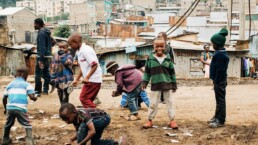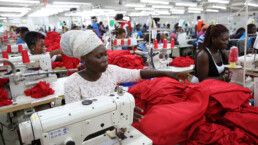The Land ownership system of Africa dates back to the precolonial era. Since many parts of the continent employed a subsistent system, land-based activities were fundamental to livelihood. Land meant access to economic power through agriculture and the replete natural resources that came with land ownership. In those traditional societies, the economies of small villages were dependent on access to natural resources like farming and livestock-rearing – all of which take place on land. Soon, this naturally became fundamental to livelihood, food security, household income, and employment. As the saying goes, “he who pays the piper calls the tune.” It didn’t take long before land ownership became a status symbol and a tool for political empowerment. It also didn’t take long before land became a contentious issue on the continent with many conflicts fueled by it. Today, this narrative hasn’t shifted as land still is a tool for oppression, power, control, and disruption.
In recent times, these conflicts have largely been between governments or big industries and traditional societies. As opposed to farming, land is now primarily a tool for the creation of real-estate and tourism hubs – a desire for further wealth accumulation. A by-product of this desire is what birthed the now worrisome saga of land grabbing and forceful evictions of smaller communities. As a result of the desire for ownership and control of land assets, Africans in their thousands have been displaced for the acquisition of lands and other resources with their properties destroyed to give room for development projects. Many have been permanently ejected from their homes and separated from their families without the provision of appropriate forms of protection.
Over the past two decades, there have been various forms of publicized and unpublicized forceful evictions with no signs of that slowing down anytime soon. Between 2000 and 2009, Amnesty International reveals that Nigerian authorities forcibly evicted over two million people. Between November 2016 and April 2017, Lagos state authorities forcibly and violently evicted more than 30,000 residents from the Otodo-Gbame community on the outskirts of Lagos city. Nine people are believed to have drowned during that eviction and another 15 remain unaccounted for. 823 residents of the Ilubirin community also in Nigeria were forcibly evicted between 19 March 2016 and 22 April 2017 after being given just 12 days’ written notice of eviction.
In 2018, dozens of people, including more than 30 children, were left homeless after their homes were demolished by 20 armed police and bulldozers in the farming area of Embetseni in Malkerns town, Swaziland, while further west of Africa in Ghana we witnessed the eviction of indigenous people from the Digya and Kyabobo National Parks.
Since the first set of issues came to the fore, the United Nations had put systems in place to curb these kinds of human rights violations. These include the right to life, dignity, equality, freedom, and security of the person, as well as privacy. All these violations often come as a result of forced eviction.
The UNCHR in 1993 adopted a resolution titled ‘Forced evictions’ which stated that “forced evictions are a gross violation of human rights, in particular the right to adequate housing.” It added that ‘forced evictions and homelessness intensify social conflict and inequality and invariably affect the poorest, most socially, economically, environmentally and politically disadvantaged and vulnerable sectors of society.’ Since then, other reports have been made available even until the development of the UN Guidelines on Evictions, which were presented to the UN Human Rights Council (Special Rapporteur on Housing, 2007) and formally acknowledged by the Council in December 2007. Even the constitutions prevent it. Section 34 of the Nigerian constitution explains that these evictions violate the right to dignity. Section 26(3) of the Constitution of South Africa explicitly states that “No one may be evicted from their home, or have their home demolished, without an order of court made after considering all the relevant circumstances. No legislation may permit arbitrary evictions.” Yet, over the years, cases of forceful evictions have further increased with nothing done.
Just a few months ago, in Nigeria, over 4500 people were displaced by the Nigerian navy. Around 9am on Tuesday, 21 January 2020, residents of Okun Ayo and Tarkwa Bay communities which is home to fishermen, artisans, artists, and business people engaged in local tourism, among others – were shocked when the military personnel very violently ordered everyone to leave their homes within one hour. Before then, this small community even with no access to public services like electricity, water, or formal employment, had found a way to fend for themselves by being part of the informal tourism economy. Today, the entire ecosystem has been disrupted. Reports show that this forceful eviction brings the number of communities forcibly evicted by the Nigerian Government through the Nigerian Navy to at least two dozen in less than a month.
A Case For Development: A Counterproductive Approach
Many of the cases of displacement and forceful evictions were born out of desperate attempts by African governments to increase the development of the region. For example, in 2018, the homes of about 30,000 people were demolished in a Kenyan slum to make way for a new $20m (£15m) dual carriageway in the capital Nairobi. Also, In February 2013, authorities in Lagos, Nigeria forcibly evicted at least 9,000 people from Badia East to make way for a government building project. These cases and more reveal that a trade-off is being made to develop Africa regardless of the human rights issues that come with it.
Tourism and nature conservation are also reasons that are cited by governments in their efforts to remove villagers from their settlements to make way for the establishment of national parks and other tourist hubs. There is also the narrative that since some of the coastline dwellers seemingly live in unfavourable conditions, they are sent out to find better. Even the most recent event in Tarkwa Bay was described as part of an operation by the military towards stopping the looting of nearby oil pipelines.
However, research by Amnesty International and the Centre on Housing Rights and Evictions (COHRE) show that forced evictions have reached epidemic proportions with more than three million Africans being forcibly evicted since 2000. Not only have they become commonplace within the continent, there is the addition of violence meted out to innocent citizens and complete negligence to the rights of these individuals through non-payment of compensation and a complete denial of their right to due legal process.
Asides being unconstitutional, they are also counter-productive to security as these evictions have been known to cause loss of lives, mass homelessness, separation and worsen poverty rates. The implication on the socio-economic welfare of these individuals is that crime becomes a more alluring option. It also undermines local developments as these displaced victims are forced to rebuild their lives all over again. In cases where the cries are loud and African governments fail to mitigate the suffering of its people, the onus falls back on international aid agencies to offer help. Without a doubt, forced evictions are creating one problem to solve another one.
A Better Option
The development of Africa is not a one-sided plan. It requires a holistic approach that puts the lives and wellbeing of Africans themselves first. While the government will claim that these evictions are sometimes carried out to protect the people and the environment, there is an underlying truth of the corruption of the system as many of these lands are simply reallocated.
The evictions remain inhumane and will only take the developmental efforts steps backward. What is more critical is that the government provides alternatives to settlers albeit temporarily as it is indeed their responsibility to do so. There can be no other excuse for this abuse of power other than a lack of conscience in leadership and the failure of the citizenry to make specific demands through appropriate channels for positive changes to be made. While the development of any society requires that certain sacrifices are made, the existing methods are most definitely not worth it.
The views expressed in this article are those of the author alone and not the Future Africa Forum.
The views expressed in this article are those of the author and do not necessarily reflect the views of Future Africa Forum. Future Africa Forum is a pan-African policy think-tank and policy advisory consultancy headquartered in Nairobi, Kenya.


